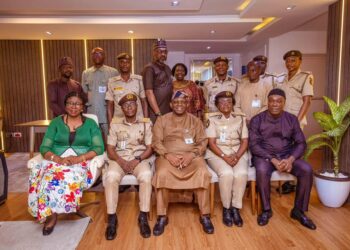Between March 3 and 5, 2010, the Council for the Regulation of Freight Forwarding in Nigeria (CRFFN) held the second and third legs of its stakeholders’ forum in Kano and Port Harcourt, respectively. Coming a couple of months after a similar forum was held in Lagos, there is no doubt that the event was largely successful; drawing participants from stakeholders in both the northern as well as the south- south and south eastern parts of the country.
Just like the one which held in Lagos, the Kano and Port Harcourt events were witnessed by members of the leading freight forwarding bodies; including, associations, institutions and related bodies. Notable among those who attended were members of the Association of Nigerian Licensed Customs Agents (ANLCA), National Association of Government Approved Freight Forwarders (NAGAFF) and the National Council of Managing Directors of Licensed Customs Agents. It is also instructive that the CRFFN delegation to both Kano and Port Harcourt included some members of the executives of the three associations.
We recall that at the Lagos leg of the nationwide sensitisation programme, the Council’s Registrar, Sir Mike Jukwe had unfolded what he called a 10-point agenda for the Council. Part of the agenda, according to him, is to register individual and corporate freight forwarders, set eligibility criteria for freight forwarders, recognize and issue operations guidelines to association of freight forwarders based on certain yardsticks. The Registrar also promised to maintain a register which will contain names of all those who are entitled to practice as registered freight forwarder and who are qualified to use the title ‘RFF’.
Since that event which was also used to unveil Jukwe to the freight forwarding family as the new registrar, a lot of activities (all pointing to a new vista in the life of the young Council) have been taking place.
This newspaper has had reasons to raise alarm over the complete domination of the Council’s governing board by members of ANLCA. It has also had reasons to caution against misunderstanding its core functions when it said last year that it was interested in establishing a Nigerian Institute of Freight Forwarding.
With due respect to pioneer members of the governing board, we think that the Council only started getting its bearing right after the appointment of a registrar/chief executive officer. Prior to this time and largely because of the one-sided nature of the leadership of the Council (which excluded others and made it seem like an extension of ANLCA), it was difficult to get everyone on board. The Mr Tony Nwabunike- led governing board had difficulties in ‘selling’ CRFFN as a body that was created for freight forwarders and not for either licensed customs agents alone or worse still, for ANLCA members.
We had expressed doubt that a governing board of CRFFN which excludes the likes of the Dr Boniface Aniebonam-led NAGAFF, the Dr Zebulon Ikokide –led Institute of Freight Forwarders of Nigeria (IFFN) and the Mr Lucky Amiwero-led National Council of Managing Directors of Licensed Customs Agents can keep its head above water for long.
If a registrar had not been appointed, perhaps the Council would still be grappling with the challenges of credibility, relevance, acceptance and pursuit of its mandate.
The intendment of the Act which established the Council is not to create an appendage for ANLCA, but to create an all-inclusive freight forwarding body that will superintend affairs of all corporate and individual players in logistic chain.
Thank God, the body is gradually retracing its steps with the inclusion of all those groups that were parties to its formation. This is exemplified by the presence of all the parties in all functions of the Council.
We can only commend the Registrar and also appeal to the governing Council to earnestly fashion out ways of formally filling the remaining vacancies in the governing council so that on-going reconciliation and rapprochement can be total.
















Discussion about this post